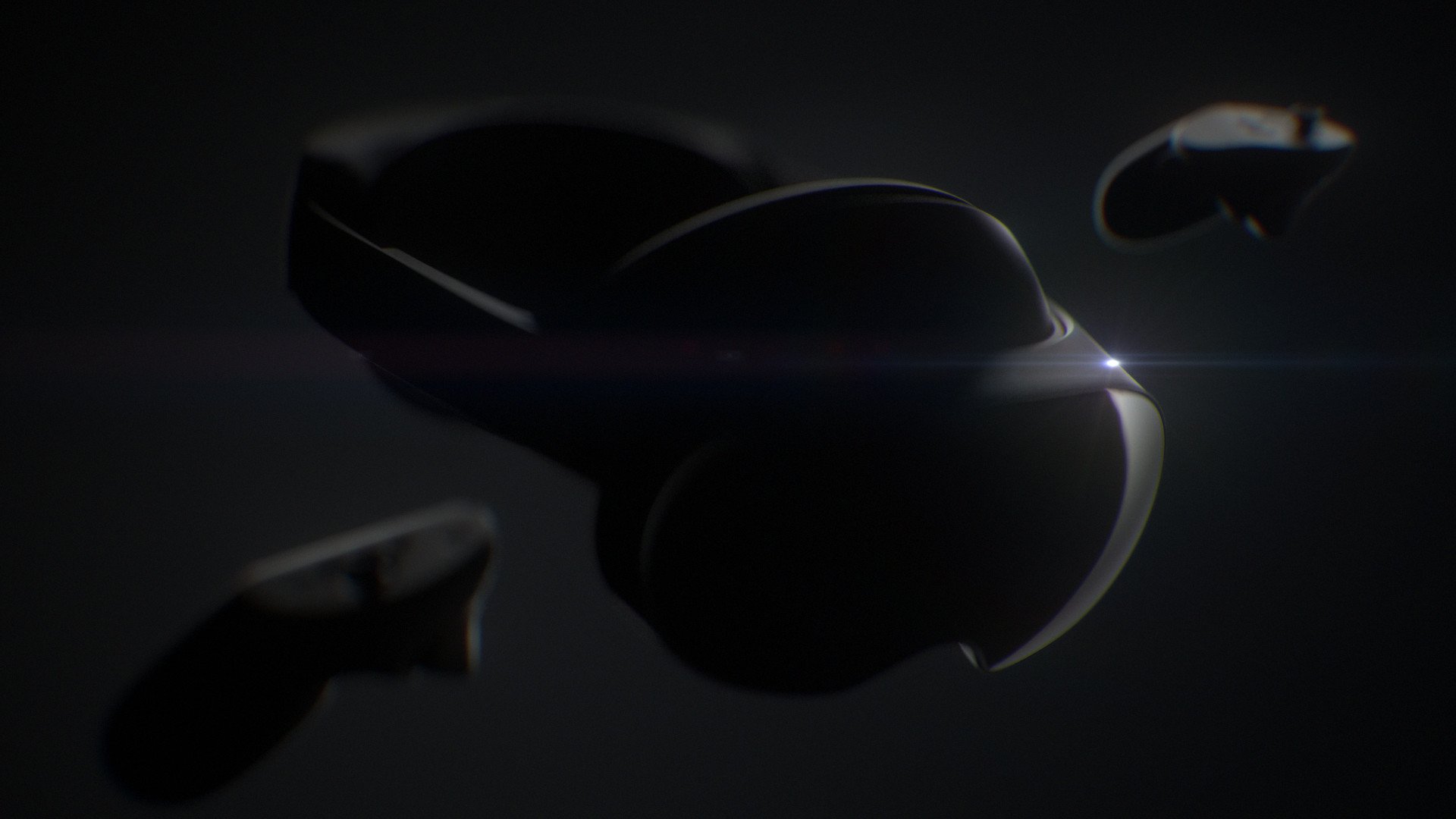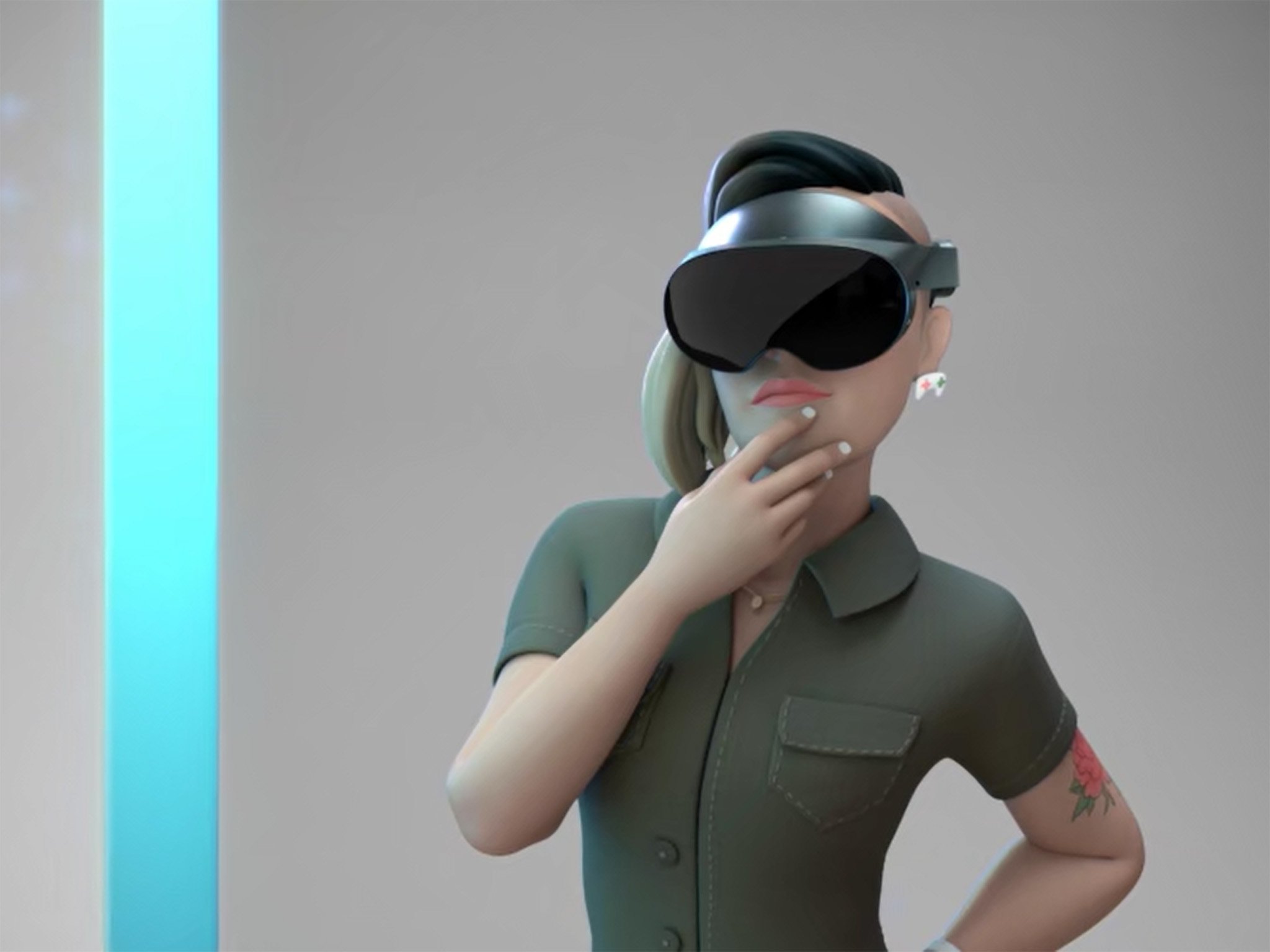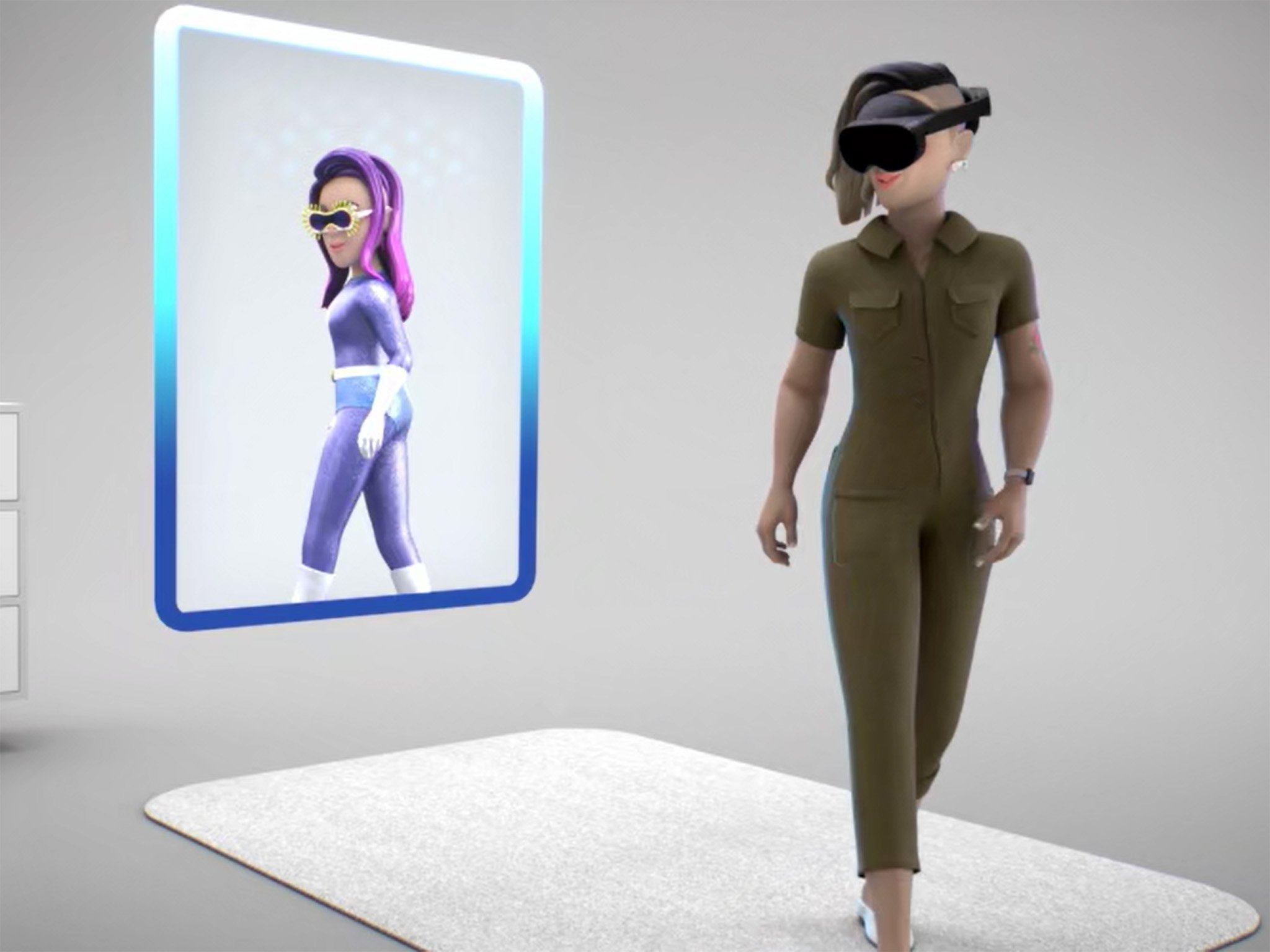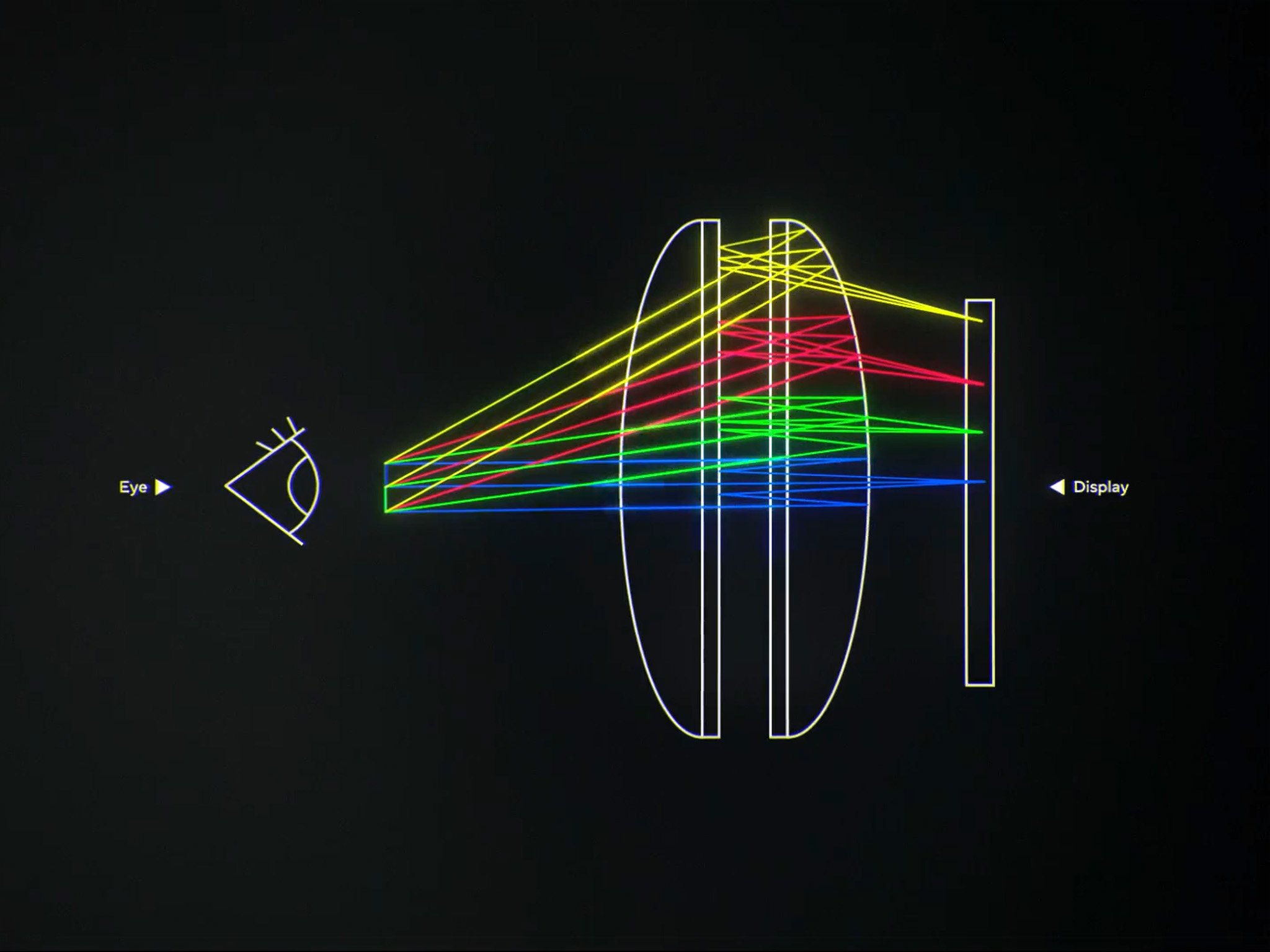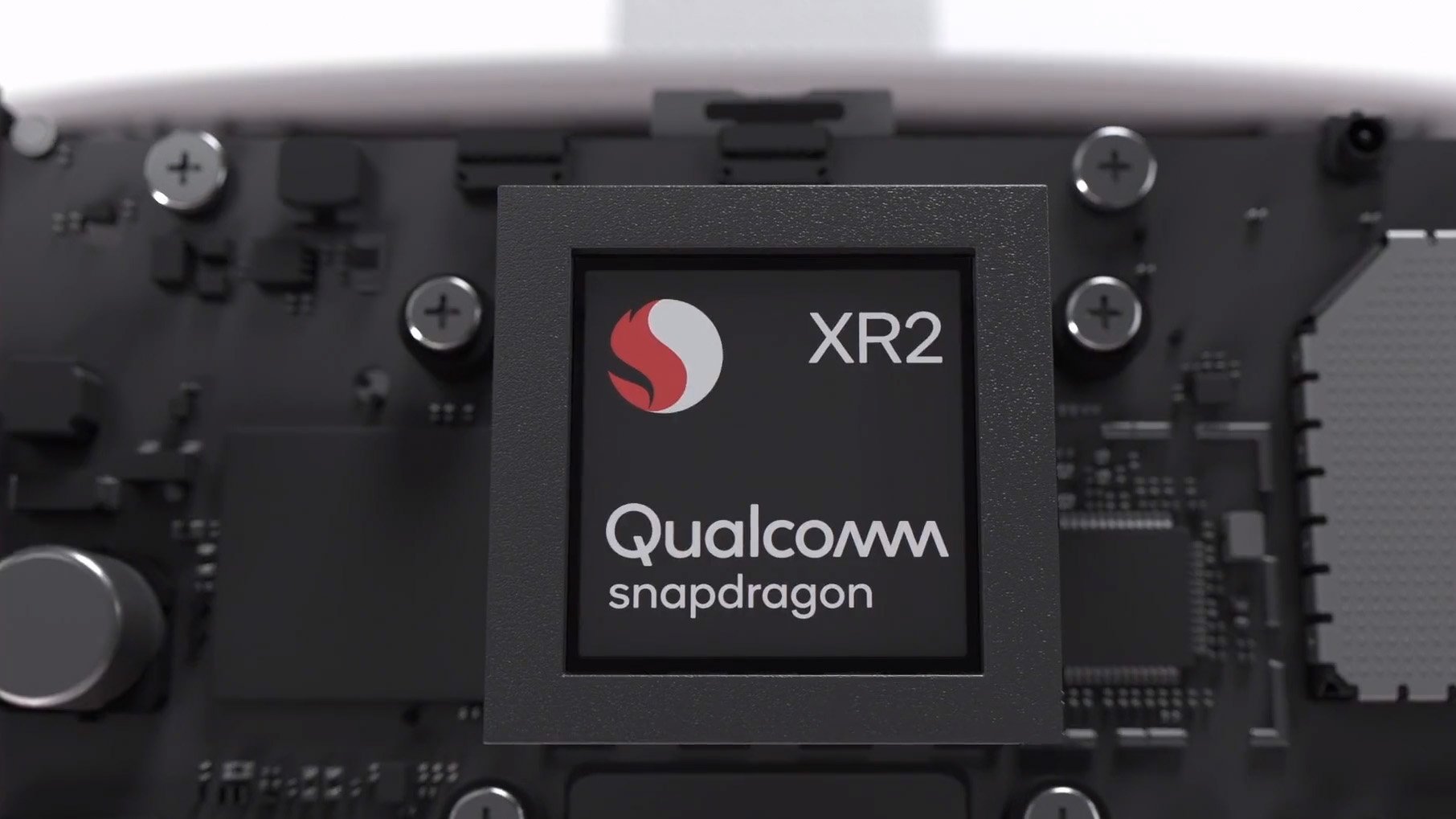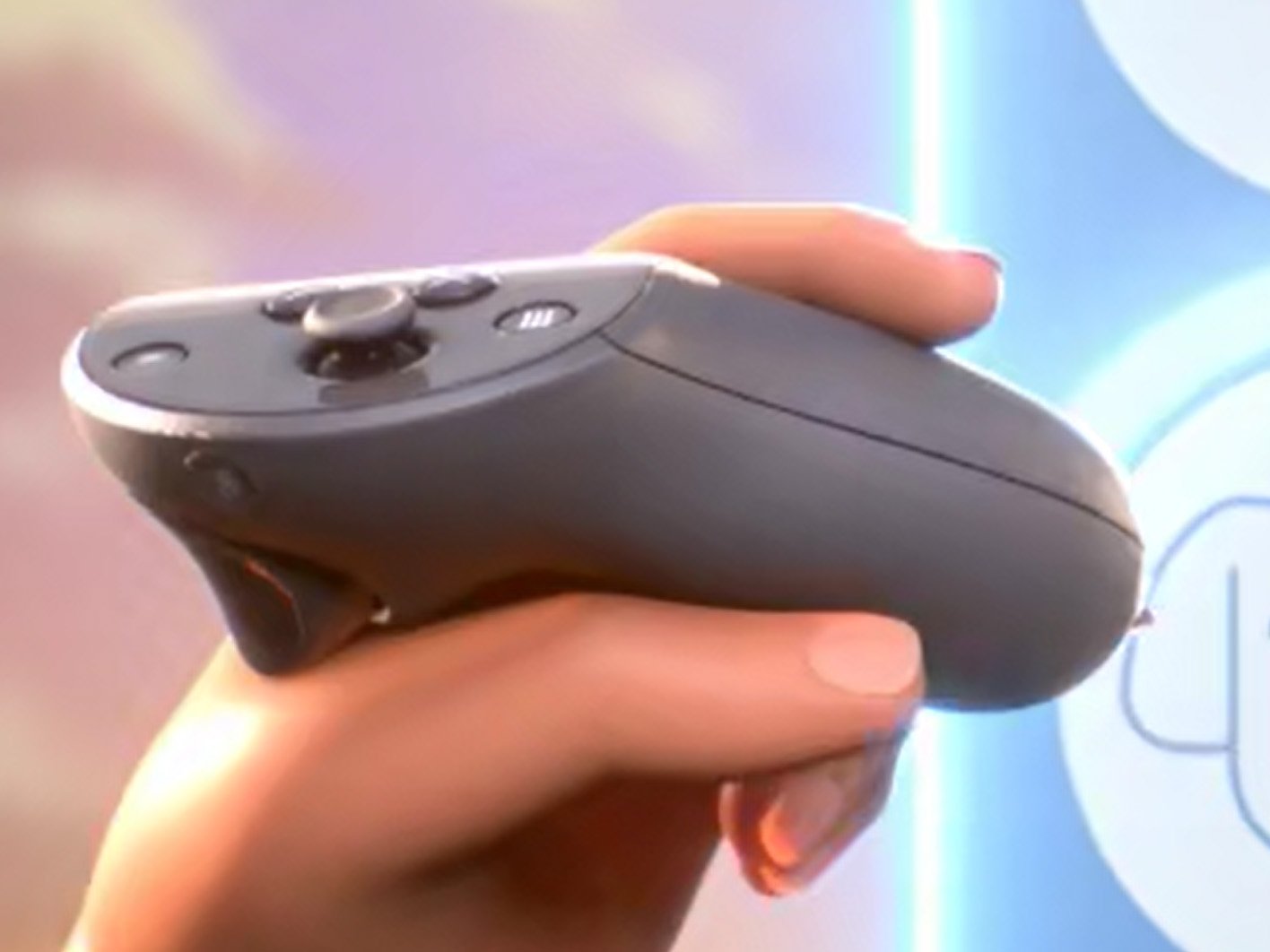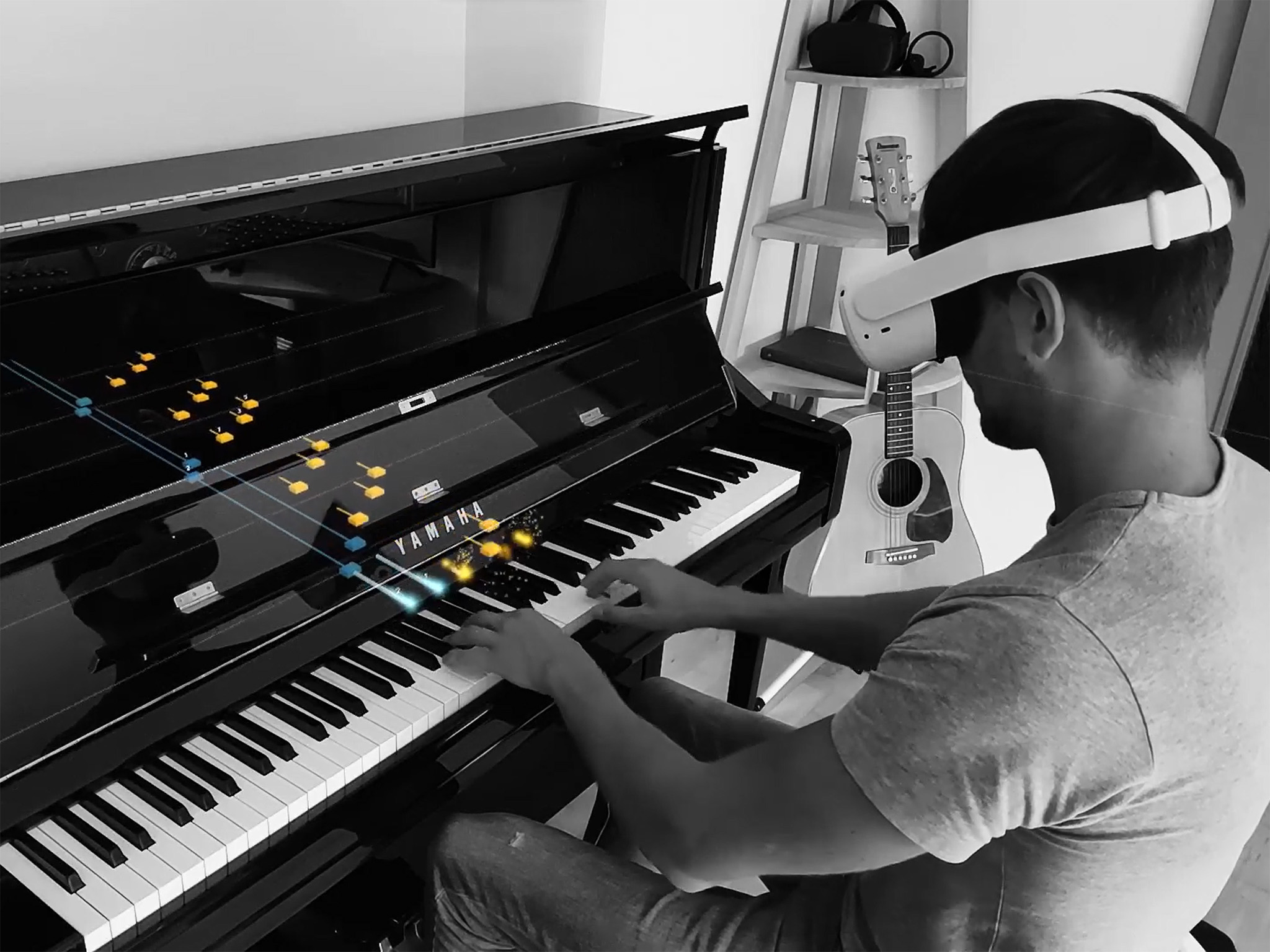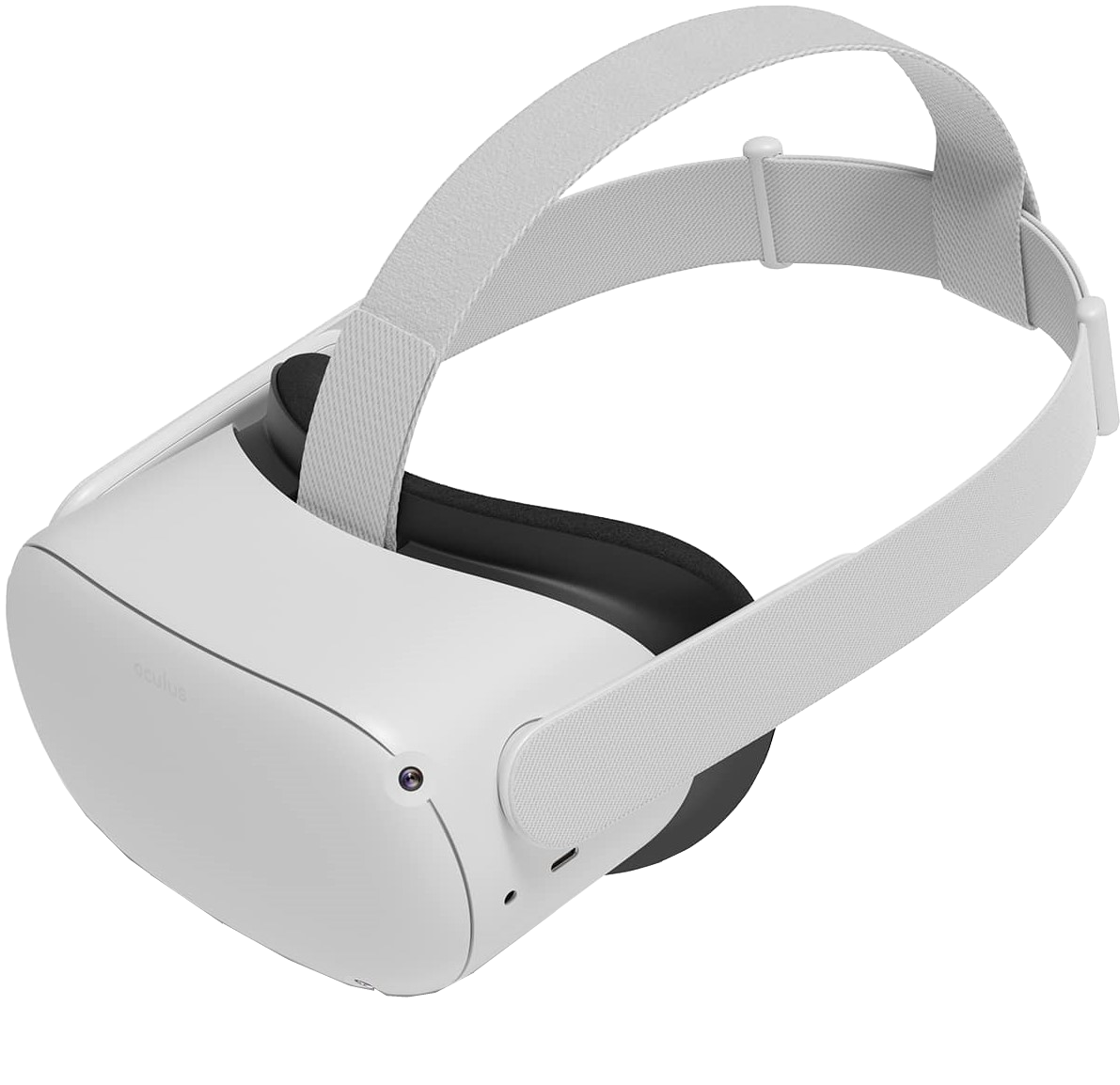Oculus Quest Pro: Everything we know about Project Cambria
The long-rumored Quest Pro and Project Cambria may be one and the same.
Before Oculus was rebranded to Meta, we'd heard rumors for about half a year that Oculus was hard at work on a Quest Pro. While the Oculus (Meta) Quest 3 remains far off, plenty of evidence suggests that Meta plans to release a new Pro-branded VR headset in 2022.
During the recent Metaverse announcement, Mark Zuckerberg announced Project Cambria, a high-end headset that will exist alongside the Oculus Quest 2. But comparing how Zuckerberg described Project Cambria to prior leaks about the Quest Pro, our educated guess is that Project Cambria will officially be named the Meta Quest Pro.
Keeping that in mind, we'll break down what we officially know about the next Meta headset - whatever it's called - from its leaked features to its announced tools. If you're considering buying a new VR headset, this should help you decide whether to wait or jump on the Quest 2 now.
Jump to:- Quest Pro or Project Cambria
- Release date
- Price
- Wired or wireless?
- Design updates
- Lens updates
- Processor
- New controllers
- Exclusive games and apps
Back in March 2021, Mark Zuckerberg gave a podcast interview on VR in which he talked about a future Oculus Quest Pro headset. He described how it would use face and eye tracking to support realistic avatars with matching facial expressions. He also mentioned that the lenses needed to be improved to better recreate the world outside the headset for mixed-reality experiences.
Similarly, during an April Twitter Spaces interview, Oculus CTO John Carmack described how some at Oculus felt they needed to push the envelope rather than perfect the Quest 2 design. That camp felt that "we need depth cameras, we need mixed reality sensors, we need eye tracking, we need face tracking." So they began to actively develop a "Pro version" of the Quest that will use "every sensor in the kitchen sink."
![]() The Meta promo showing how your Project Cambria avatar would mimic your expressions in real time.
The Meta promo showing how your Project Cambria avatar would mimic your expressions in real time.
Why does this matter? Because what little was revealed about Project Cambria during the Metaverse livestream (embedded above at the relevant timestamp) all revolved around these very features. Angela Chang, Oculus Director of Products, described how, with Project Cambria, "your avatar will be able to make natural eye contact and reflect your facial expressions in real time."
Chang also described how their new "high-resolution, colored, mixed reality Passthrough" is better designed "to represent your physical world in the headset with a sense of depth and perspective."
Zuckerberg explained that Project Cambria "isn't the next Quest," which means it isn't the Quest 3. But it is "compatible with Quest" and will feature Meta's "most advanced technology." That certainly sounds like a Quest Pro headset to us.
We're fairly confident in this guess, so for the rest of this explainer, we'll operate under the assumption that Oculus/Meta Quest Pro and Project Cambria are the same device.
When will the Quest Pro / Project Cambria ship?During the Metaverse event, Angela Chain specifically said, "next year we are releasing a new product that will push the boundaries of VR even further. We've codenamed it Project Cambria." Barring any unexpected delays, it will arrive in 2022.
The Quest 1 arrived in May 2019, while the Quest 2 launched in October 2020. Given how the company described the Pro as a premium-priced device, this isn't meant to be a major holiday gift buy like the Quest 2. And since Chang said they're "starting to work with developers to build experiences for Cambria as we speak," that suggests it already has testing units to share with those developers.
So in theory, the Quest Pro could arrive fairly early on next year; it could also need more time to perfect, though.
What will the Quest Pro cost?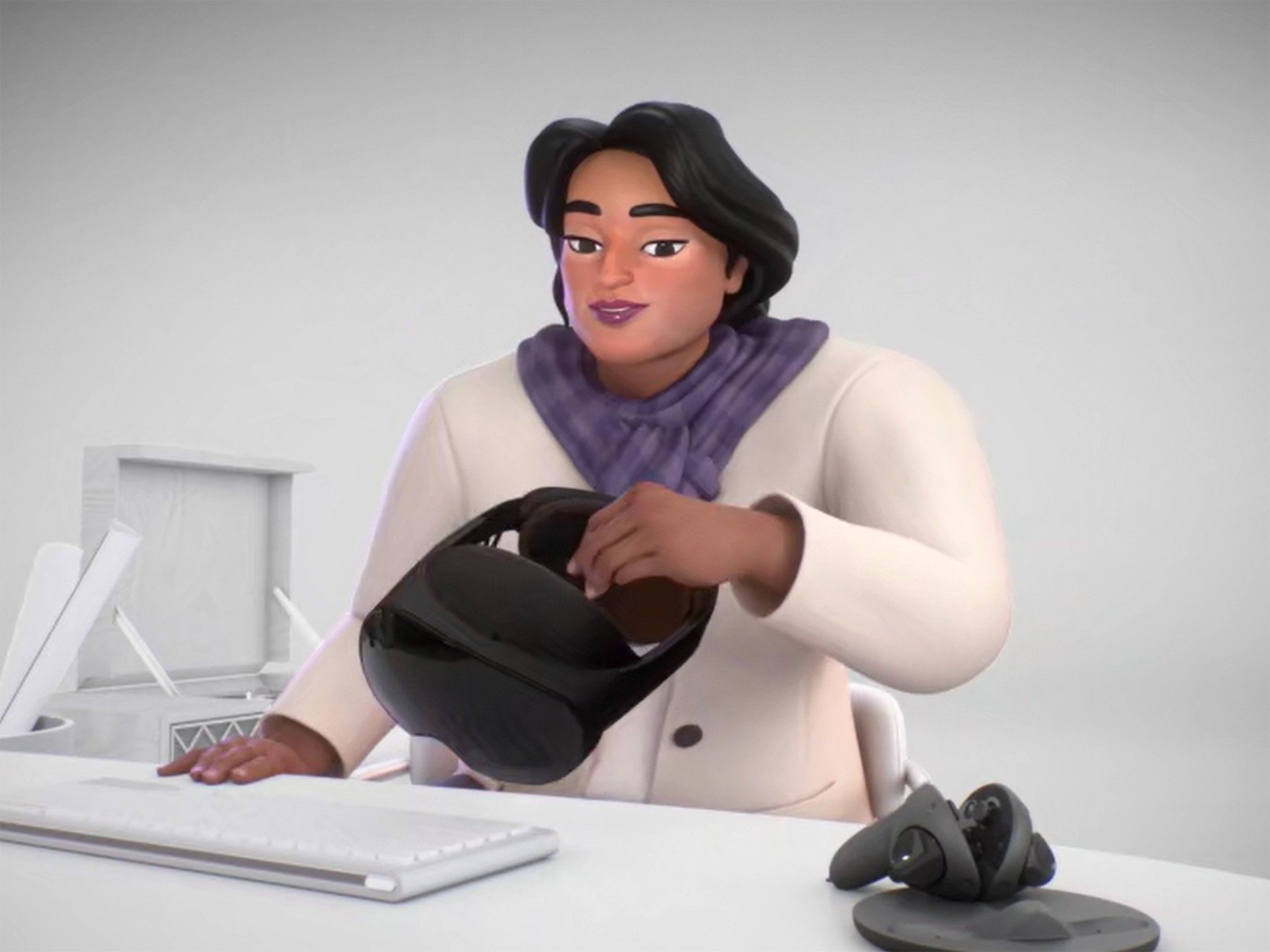 A leaked promo image of the Quest Pro
A leaked promo image of the Quest Pro
Zuckerberg explained that "Cambria will be a completely new, advanced, and high-end product and it'll be at the higher end of the price spectrum too." They will test out new features with Cambria, "before we can hit the price points that we target with Quest." Specifically, Cambria will have revamped lenses, more sensors and cameras, and very likely a more powerful processor.
The Quest 2 128GB model costs $299, upping to $399 for more storage. Given the original Oculus Rift CV1 cost $599 before they improved the technology, that could be a similar price point we see for the Quest Pro.
But the Quest Pro price could easily prove even higher, as with the $799 Vive Pro 2, $999 Valve Index, or the long-rumored Apple VR/AR headset that's rumored to cost anywhere between $1,000 and $3,000.
Until we know more about the specs, it's difficult to know for sure. But the Quest Pro could get very pricey.
Will the Quest Pro be wired or wireless?While Meta didn't say it outright, you can be certain the Quest Pro won't be wired like the discontinued Oculus Rift S. Pro doesn't necessarily mean pro-level graphics, and thanks to wireless Air Link, relying fully on wires for everything is kind of obsolete from a VR perspective.
Zuckerberg did say that Project Cambria will be "compatible with Quest," which means it needs to support the Quest library of games. That includes roomscale experiences, which would be very difficult to support with a fully-wired VR headset. Also, you can look at the shadowy promo image of Cambria from the livestream, or leaked, animated images of the Quest Pro like the one above. It has no wires in sight.
What's new with the Quest Pro design vs. the Quest 2?Right before the Metaverse event, we saw a huge Oculus Quest Pro leak showing off animated footage of customizable avatars, face and eye tracking, and (most importantly) how the headset could work and look.
It appears to have a black body - similar to the Quest 1 - and an Elite Strap-style rear strap that should better support the headset's weight. It also has more sensors and cameras inside and out than the Quest 2, which will enable better eye, face, and body tracking.
That larger rear strap also may have a battery compartment, which would allow you to swap in battery packs to keep the battery going for all-day VR sessions. There also appears to be an official wireless charging dock for both the Pro controllers and Pro headset, which implies that the headset will support wireless charging.
The Quest Pro looks distinctly more like glasses in these promo images, where the Quest 2 is more of a rectangle. The Quest Pro also looks to have more slanted forehead support, which could help it rest comfortably on your face, without sliding down your nose over time or pressing too hard into your skin.
Proud of the research Michael Abrash's team is working on at FRL-R Redmond-excited to get an early look at some of the technologies that will underpin the metaverse (we work on several prototype headsets to prove out concepts, this is one of them. Kind of. It's a long story.) pic.twitter.com/Yi9xjy5HmG
- Boz (@boztank) October 13, 2021
For a more real-life look, future CTO of Meta Andrew Bosworth showed off a "prototype" headset in early October that looks fairly similar to the leaked Quest Pro and teased Cambria renders, including better rear head support and more sculpted lenses. It's not a one-to-one match, though, as it lacks the protruding forehead padding.
How will Project Cambria's lenses be improved?To improve Cambria's visual quality when recreating your physical surroundings outside of the headset, it will use "pancake optics." Oculus designed the Pro/Cambria lenses to "fold light several times over" so they can have a thinner, lighter profile with "several optical layers."
Supply chain analyst Ming-Chi Kuo claimed earlier this year that Oculus ordered new, upgraded lenses for a headset coming out in 2022, which he assumed was the Quest 3. Instead, it's possible that it had ordered the pancake-optic lenses in preparation for next year's Pro launch.
One last note: Reddit user Reggy04 (via UploadVR) did an Oculus firmware deep-dive into a recent Quest 2 release, where he found references to the Quest Pro and options to adjust the lenses' depth, as well as their distance apart. Currently, you can only do the latter with the Quest 2.
Will the Quest Pro have an upgraded processor?The Oculus Quest 2 regularly impresses us for how well it runs immersive experiences using a lightweight design without allowing overheating. But developers do have to significantly downgrade experiences to make them work for mobile VR. The Quest Pro will also be wireless; will it run "enhanced" games, just as the Quest 2 enhances graphics compared to the Quest 1?
We don't have a clear answer here. Zuckerberg did say in an interview that he wanted to create custom silicon for the Quest 3, but this isn't the Quest 3.
In another interview, he said that to power the sensors necessary for face and eye tracking, it "takes additional compute power" to pull it off. The same would obviously go for improved cameras for passthrough.
We could see a new Snapdragon XR3 chipset made in conjunction with Qualcomm, a new custom Meta-made chip, or the old XR2 paired with more RAM to power the extra sensors.
Will the Quest Pro have redesigned Oculus Touch controllers?During the aforementioned Quest Pro leak, we also got a glimpse of mysterious new controllers that lacked the halo tracking ring of the Oculus Touch. The buttons on these controllers look to have a similar configuration as the current controllers. But they also look to have inside-out cameras to help with tracking, as well as a stylus at the bottom for writing or selecting things in mid-air.
These controllers will presumably work just as well for playing your current Quest games library, while also enabling new, Cambria-exclusive experiences.
Will Project Cambria have exclusive games and apps?During the Metaverse event, Zuckerberg talked about "unlocking more mixed reality experiences" with Cambria - such as virtual workouts and working at a desk while in-headset - while Chang said they're "starting to work with developers to build experiences for Cambria as we speak."
Thanks to the redesigned controllers and headset, Cambria will obviously need exclusive software to justify spending the higher price tag. Much of it could be first-party and built into the headset, such as a redesigned interface for using office and productivity tech while in office. Others could be enhanced versions of popular games, like full-body tracking being added to Beat Saber or Supernatural.
At the same time, Meta told us about its new Presence Platform for Oculus Quest, which includes better hand tracking and mixed-reality games via passthrough API. While mixed-reality and augmented-reality experiences will work better on the Quest Pro, that doesn't necessarily mean you won't be able to use them on the Quest 2 (or even the Quest 1).
What we do know is that all of the best Oculus Quest 2 games should work on the Meta Quest Pro aka Project Cambria.
The best available for nowMeta Quest 2$299 at Best Buy$299 at Amazon$299 at Walmart
Basic hardware, pro gaming library
Project Cambria is liable to be a huge upgrade, but it's also likely to cost much more than the Quest 2. Millions of people have bought (and love) the Quest 2, and that will be the best fit for regular users who don't want to use VR for professional or Metaverse contexts.
